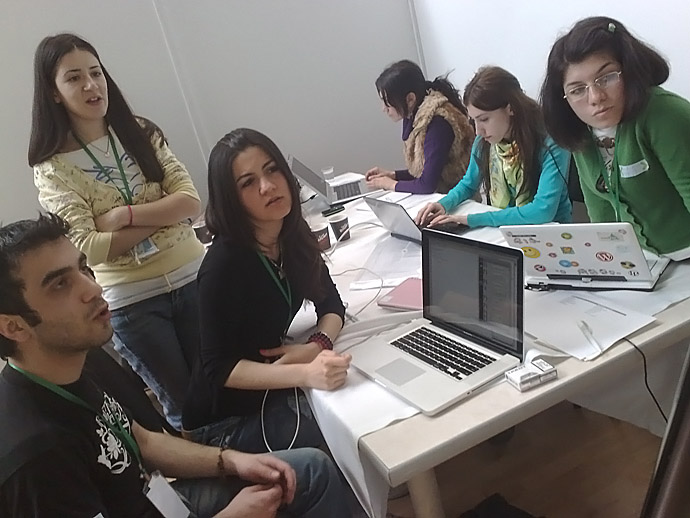
Tbilisi, Georgia, and a conference on using social media for social change. Nothing new in that for many people reading this blog, perhaps, but low Internet penetration thanks to high costs and slow connections makes the situation somewhat different in the South Caucasus. A 4 mb/s connection in Georgia, for example, costs around $19 per month. In Armenia, a 256 kb/s connection costs $35.
However, as connections improve and prices drop that will eventually change and especially in Georgia where connection speeds are the fastest and cheapest in the region. Azerbaijan is also experiencing a huge surge in Internet use while Armenia looks set to soon benefit from $4 million in U.S. Government funding for "alternative media resources."
In addition to the conference, where Arzu Geybullayeva and I once again presented on the use of new media in Armenia-Azerbaijan conflict transformation (see slide show above), there was also a Social Innovation Camp where participants from Armenia, Azerbaijan and Georgia worked together to realize ideas as online projects to achieve social change.
Anna Keshelashvili worked hard on the main arrangements for the camp and particularly on the Georgian side while I engaged in outreach on the Armenian side, and not least because both of us had participated in a camp in Bratislava last year. In particular, my encouragement of environmental activist Mariam Sukhudyan to submit an idea worked wonders.
Her project, Save The Trees, won the jury prize and is already online. Other ideas from Armenia, Azerbaijan and Georgia constructed by teams mainly comprising members from all three countries are here. Anyway, great event and a great time was had by all. Read more about the camp here and my own social media project on conflict transformation is here.
Photo: Social Innovation Camp Caucasus, Tbilisi, Georgia © Onnik Krikorian / Oneworld Multimedia 2010 on Nokia N82

On a related note, the Caucasus Analytic Digest has just published an edition on the use of the Internet in Armenia, Azerbaijan and Georgia, including one report by yours truly:
http://www.res.ethz.ch/analysis/cad/details.cfm?lng=en&id=115031